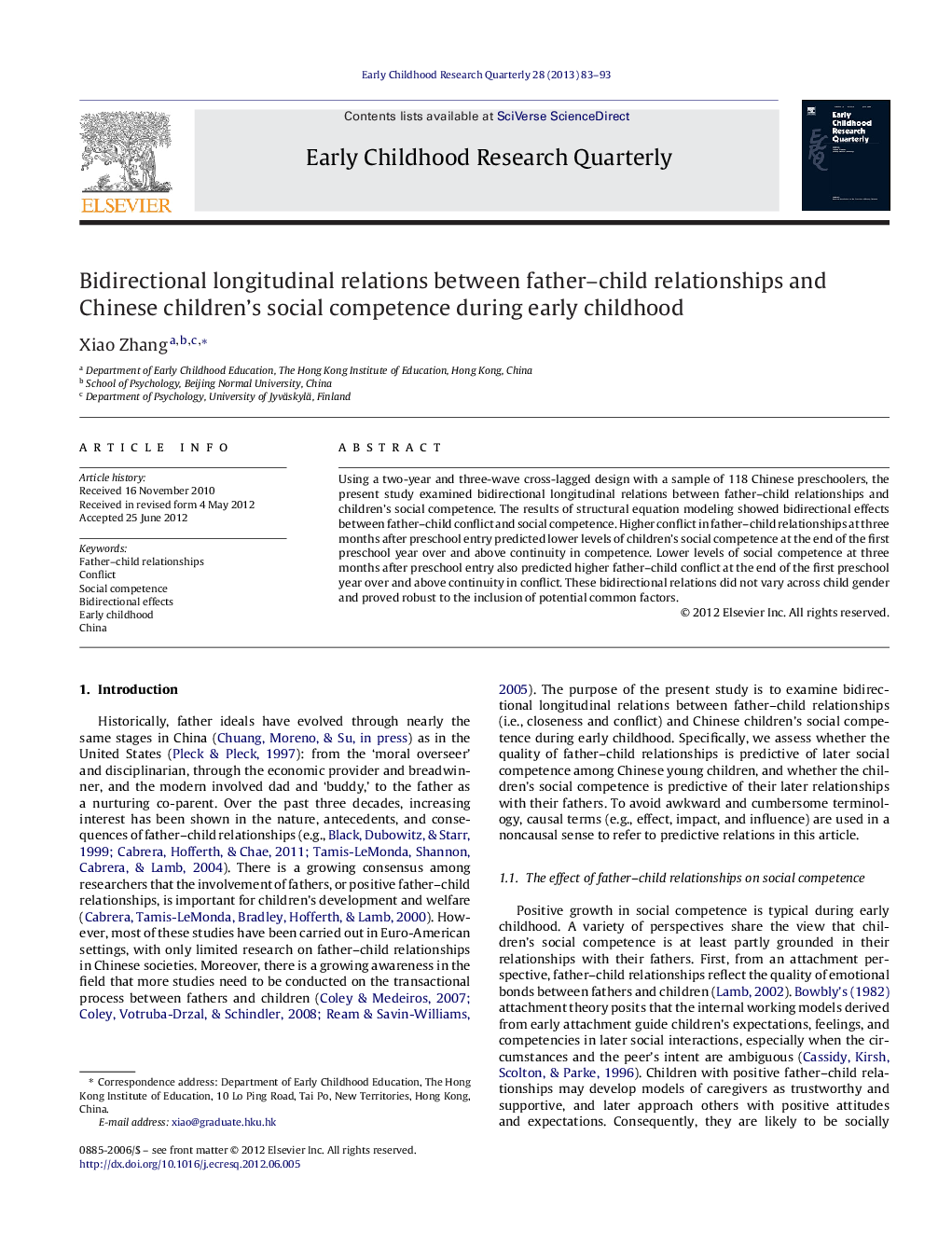| Article ID | Journal | Published Year | Pages | File Type |
|---|---|---|---|---|
| 353763 | Early Childhood Research Quarterly | 2013 | 11 Pages |
Using a two-year and three-wave cross-lagged design with a sample of 118 Chinese preschoolers, the present study examined bidirectional longitudinal relations between father–child relationships and children's social competence. The results of structural equation modeling showed bidirectional effects between father–child conflict and social competence. Higher conflict in father–child relationships at three months after preschool entry predicted lower levels of children's social competence at the end of the first preschool year over and above continuity in competence. Lower levels of social competence at three months after preschool entry also predicted higher father–child conflict at the end of the first preschool year over and above continuity in conflict. These bidirectional relations did not vary across child gender and proved robust to the inclusion of potential common factors.
► We model relations between father-child relationships and social competence. ► Higher father-child conflict predicts lower levels of social competence. ► Lower levels of social competence predict higher father-child conflict.
